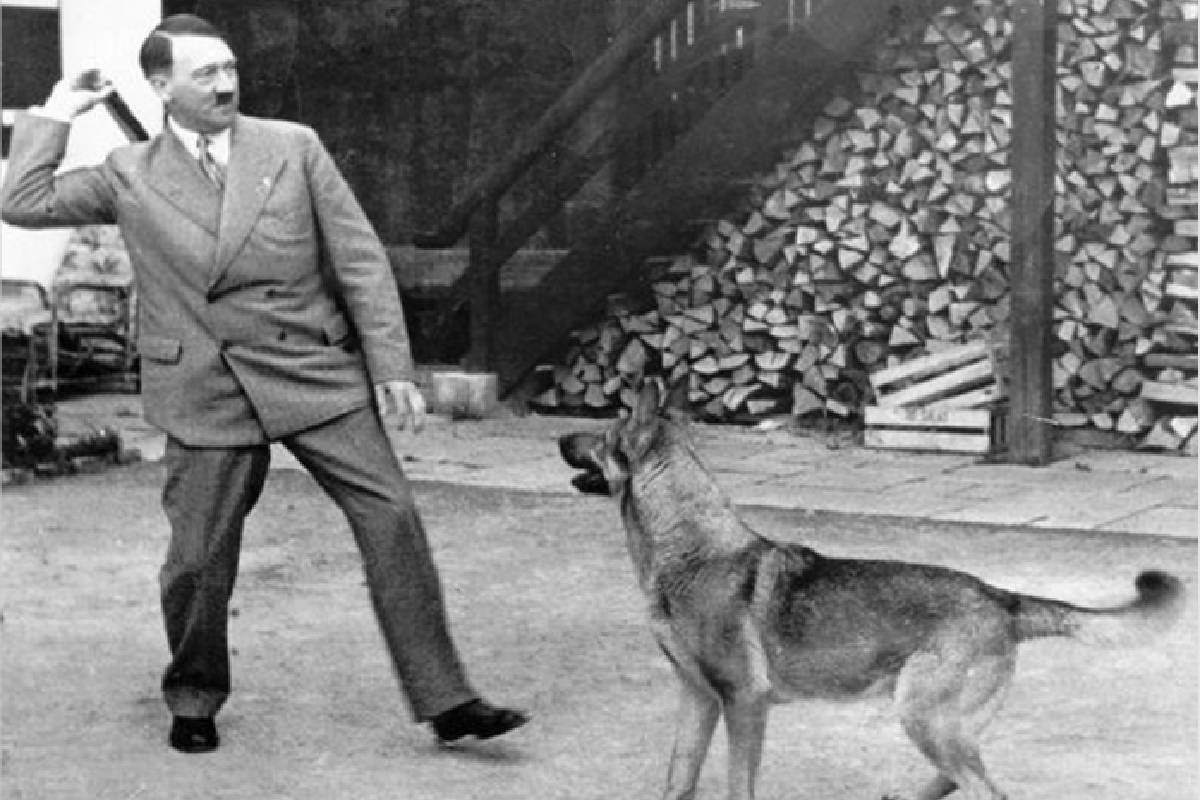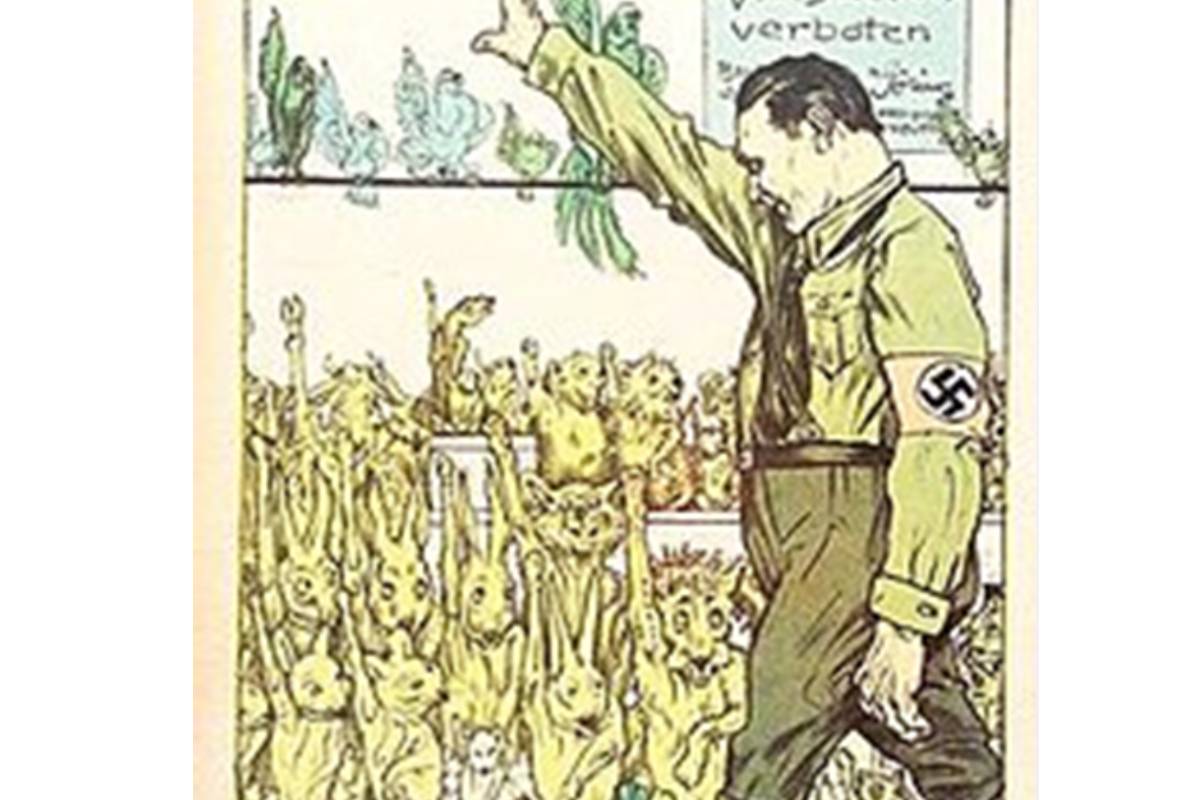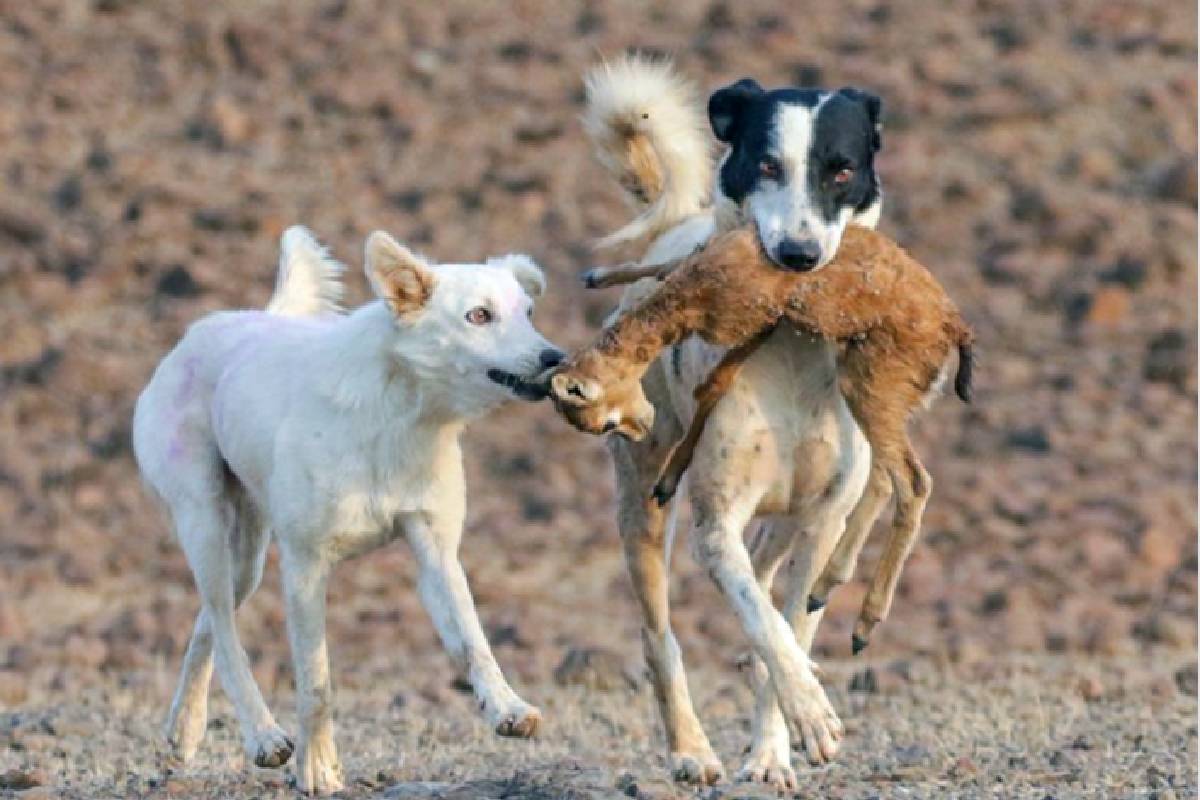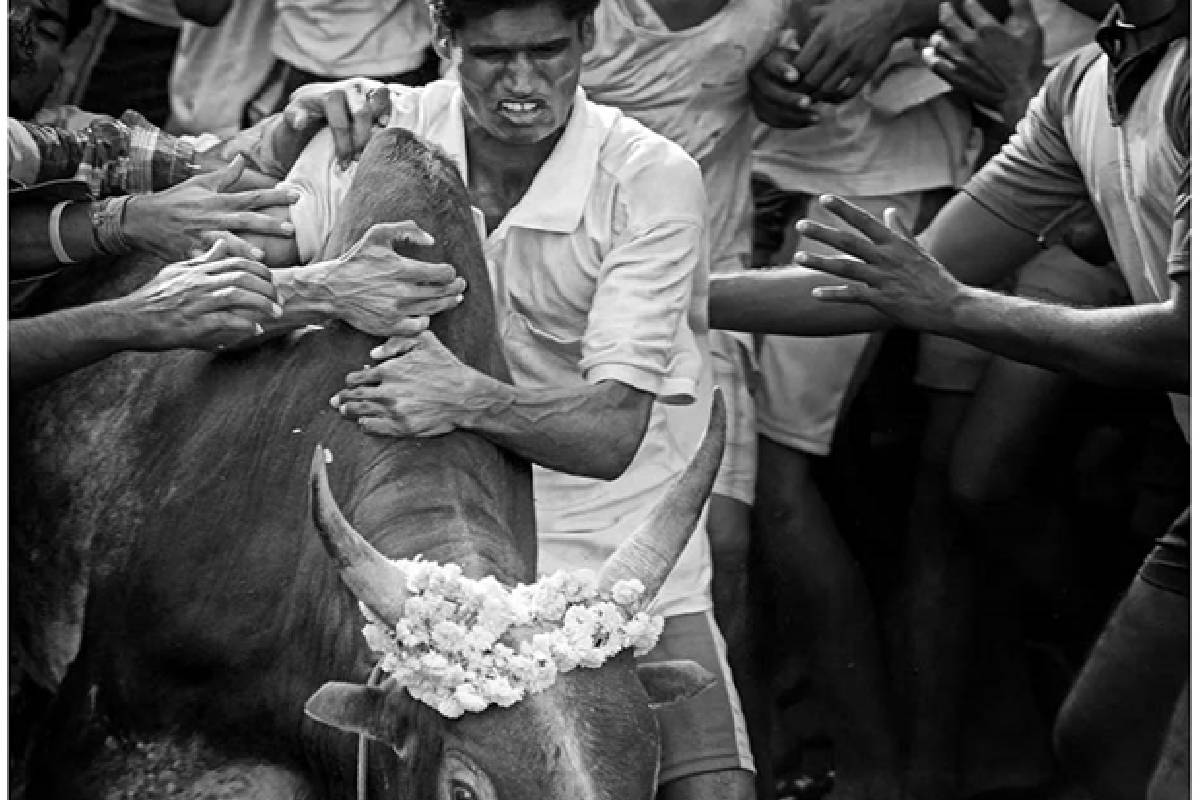For centuries, Jallikattu’s cultural reverberations have profoundly influenced rural life in India – a rite of passage with characteristics of ritual, festival and sport, integral to animal husbandry, belief and tradition, providing generations of farmers with a connection to the sacred, the land and their animals.
In 2014, the Supreme Court’s A. Nagaraja judgment held that the tradition of Jallikattu or ‘bull jumping’ was ‘violative’ of Article 51-A(g) of the Indian Constitution, that calls for citizens to have ‘compassion’ for living creatures and effectively banned Jallikattu. “Compassion” is also the basis of the Animal Birth Control Rules, meant to ostensibly control the stray dog populations in public spaces, but ironically mandates that stray dogs remain homeless, fed and maintained, in public (and private) spaces.
The Oxford dictionary describes compassion as – “sympathetic pity and concern for the sufferings or misfortunes of others.” But can an undefined, subjective emotion coexist with the rule of law? In India the term ‘compassion’ was introduced in the 42nd Amendment of the Constitution, where one of the Fundamental Duties inserted was ‘to protect and improve the natural environment including forests, lakes, rivers and wild life, and to have compassion for living creatures’ (Constitution of India, Part IV-A, Art. 51A(g)). The statement sounds benevolent enough but the circumstances surrounding its insertion and subsequent use call for deeper analysis.
The 42nd amendment to the Indian Constitution was enacted during the Emergency in India. The Indian National Congress was then headed by Indira Gandhi and unofficially by her son and heir apparent Sanjay Gandhi. The Amendment’s 59 clauses stripped the Supreme Court of many of its powers, curtailed democratic rights, gave sweeping powers to the Prime Minister’s Office, included the words Secular and Socialist in the preamble and gave Parliament unrestrained power to amend the Constitution, without judicial review. Along with Socialist and Secular being added to the preamble of the constitution, ‘compassion,’ was made part of a citizens’ duties and India seemed headed towards becoming a socialist, authoritarian state. Democracy during the Emergency was suspended and Sanjay Gandhi, backed by legions of sycophants, was known for being the driving force behind a human sterilisation program where close to 11 million Indians were sterilised. Upto 6.2 million Indian men were sterilised in a single year, which according to science journalist Mara Hvistendahl was “15 times the number of people sterilised by the Nazis”. As India sterilised its citizens a list of ‘Fundamental Duties’ including the duty to have ‘compassion’ for all ‘living creatures’ was added to the Constitution.

The only other time in world history when ‘compassion’ was made a value to be embraced by a citizenry, was in Germany. In 1933, 80 days after becoming Fuhrer, Hitler became an animal rights pioneer and his National Socialist German Workers’ Party (the Nazi party) enacted the Reichstierschutzgesetz or Reich Animal Protection Act whose main purpose was “to awaken and strengthen Compassion as one of the highest moral values of the German people.” (Giese and Kahler 1944; Waite 1977, 41).
Why would one of the first acts of the Nazis be to promote ‘compassion’? Boria Sax and Arnold Arluke in their paper “Understanding Nazi Animal Protection and the Holocaust” write “At the core of the Nazi idea of animal rights was a reconstitution of society’s boundaries and margins as well as the citizenry’s relationship with nature and the state.” A focus on ‘compassion for animals’ allowed for a redirection of a population’s emotions and was an effective mask that covered for genocide.

So successful was this ‘reconstitution of society’s boundaries’, that when the Nazis started interning Jews for subsequent slaughter, newspapers were flooded with outraged letters from Germans demanding to know what happened to the pets the Jews had left behind. The same occurs today in India when children are mauled, mutilated or killed by stray dogs and animal rights activists openly express concern for ‘voiceless’ dogs, often the same animals that have mauled or killed children.
The perplexing question is how the Nazis seemed to show such ‘compassion’ towards animals while murdering millions of people. Firstly, according to Arnold Arluke and Boria Sax, in Anthrozoos (1992), many prominent Nazis were psychologically evaluated and claimed affection for animals but a dislike for humans, a seemingly common trait in many present-day animal rights activists who openly claim to love animals but despise humanity due to the ‘corrupt’ and ‘evil’ nature of man, allegedly always at odds with nature and animals, and thus as implied, deserving of his fate. Secondly, animal protection laws were the legal fog through which Jews and others were attacked, balancing brutality toward human beings while offering society a compassionate foundation to justify various horrors. Thirdly, the blurring of moral distinctions between humans and animals led to a general devaluation of human life and allowed for atrocities and apathy to manifest.
Gregory Stanton of ‘Genocide Watch’ states that one stage that can lead to genocide is when a group denies the humanity of the other, by equating humans with animals. Animal rights ideology calls for ‘equal’ consideration for people and animals and if animals are to be given the same consideration as humans, then of course, some humans can then be considered as animals. This dehumanization can overcome the normal human revulsion regarding violence towards people. Today in India, horrific dog attacks take place every single day, mostly on the poor, while the media publishes ‘compassion’ pieces regarding stray dogs.
Contrary to the Nazi Hermann Goring who said “those who still think they can continue to treat animals as ‘inanimate property’ would be sent to concentration camps”, the Indian Constitution via the Prevention of Cruelty to Animals Act, views animals as property, via an animal welfare-based framework and not via an ‘animal rights’ based view.
The idea as per the Indian Constitution and PCA Act is not to vest animals with ‘rights’, but to vest humans with the duty to protect animals, importantly, within the principles of animal welfare and not animal rights, concepts fundamentally opposed. Animal welfare allows for the usage of animals and is only against ‘unnecessary’ cruelty and not ‘necessary’ suffering that may be caused in the upholding of human rights or out of human necessity. Thus, the animal welfare-inspired PCA Act allows for the killing of stray dogs, a domestic animal meant to exist within the care and control of humans – to first protect humans but to also protect unowned dogs from unnecessary suffering caused by their homelessness – humane euthanasia a merciful option.
‘Animal rights’ has been globally popularised by the ‘father of animal rights’ Peter Singer, called “the most dangerous man in the world” by his detractors. ‘Animal rights’ calls for abolishing all usages of animals and ‘equal’ consideration for humans and animals by society and the state – statements that sound ‘compassionate’ but warrant deeper attention.
All constitutions, including India’s, separate animals and humans and their treatment via law. The New York Supreme Court judged that a zoo elephant could not be legally considered a ‘person’ stating that extending human rights to an animal would have an “enormous destabilising impact on modern society”. Likewise, in 2023, a five-judge Constitutional Bench of the Supreme Court effectively overruled the Supreme Court’s earlier A. Nagaraja Judgement, and allowed Jallikattu, stating that India’s Constitution does not recognise fundamental rights for animals.
All philosophical theories evolve and manifest. The animal rights idea of anti-speciesism or moral favouritism towards members of one’s species being a prejudice – has predictably moved towards twisted extremes. Peter Singer says human life is not necessarily more sacred than an animal’s, supports human infanticide, says that it could be better to medically experiment on children over rats and that parents should have the right to kill their newborn babies. Singer co-authored an op-ed in the New York Times in which he appears to defend the morality of raping disabled people and believes it is okay for parents to have children & then kill them to harvest their organs. Singer seems to support bestiality or sex with animals and in this 2001 essay graphically describes human sex with a chicken, implying that raping a chicken might be better for the chicken than its life as farmed poultry.
Peter Singer is currently on the advisory board of FIAPO – the Federation of Indian Animal Protection Organisations, which files numerous court cases in India both to change animal-related policy and to ban various animal-using customs, practices and traditions. The advisory board of FIAPO includes Justice K.S. Radhakrishnan, who retired from the Supreme Court a week after delivering the A. Nagaraja’s judgement banning Jallikattu seemed to give ‘rights’ to animals.
He was subsequently recognised by PETA for its man of the year award. Post the A. Nagaraja judgement animal rights activist and politician Maneka Gandhi also received the 6th Peter Singer award from Singer himself, with ironically, the former head of the Ministry of Women and Child Development receiving the award from a man who publicly supports human infanticide.
PETA India is also a part of FIAPO & its American parent organisation ‘PETA’ which has been described as “by far the most successful radical organization in America”, that has allegedly supported some of America’s most ‘active and prolific terrorist groups’ according to the FBI.
Singer’s controversial ideas seem to be adopted by many in India. Alok Hisarwalla Gupta, a national law school faculty member heavily involved with conservation and animal rights issues, in his co-authored paper “The permissible and the perverse: Indian geographies of interspecies sex”, ends with “We conclude with a queer bestial ethics of avowal, that dispenses with anthropatriarchal innocence towards a more capacious embrace of the pan-species desire for touch and thriving,” which seems to imply that the authors think it could be okay to have ‘sex’ with animals.
In India, Animal Rights inspired cases backed by FIAPO and its member organisations, relentlessly attack Hindu traditions like animal sacrifice, temple elephants, pilgrimage mules, Jallikattu, bull racing, and dietary choices including dairy in furtherance of animal rights ideology that calls for no usage whatsoever of animals and ‘animal liberation’. Instead of improving animal welfare issues associated with traditions and usage of animals as called for by the PCA Act, animal rights interventions are often oriented towards banning practices entirely. Besides attacking traditions, heavily funded animal rights-inspired ‘environmental’ and wildlife NGOs across the global south attack, fund efforts and influence policy to capture wildlife industries with agendas often at serious odds with genuine conservation goals & human rights. Like colonialism and communism, the power grab wears a benign mask of ‘compassion’.
FIAPO and its member organisations receive massive overseas funding to the tune of 100s of crores, including from groups known to affect policy in many nations in the global south like PETA and Humane Society International. Many of these animal rights-inspired efforts negatively affect industry, traditions, pharmaceutical and agri-livestock practices.
For example, in 2001, the Union Culture Ministry headed by Maneka Gandhi – which has nothing to do with public health or disease management – notified the ‘animal rights’ inspired Animal Birth Control (ABC) Rules ostensibly for stray dog control. In 2023, the Department of Animal Husbandry and Dairying (only responsible for the breeding of livestock) amended the ABC rules based on recommendations of the Animal Welfare Board of India, the self-appointed “…Apex body for the protection and safeguards of the rights of animals…” and made the ABC rules worse by mandating the maintenance and feeding of stray dogs in public and private premises, even after they have mauled or killed people.

The results of the animal rights-inspired ABC rules have, in the words of the New York Supreme Court, had “enormous destabilising impacts on modern society” as seen in India. The ABC rules follow Singer’s theory of ‘animal liberation’ and ‘anti-speciesism’ and give stray dogs greater rights than citizens, mandating their feeding on public or private property no matter what the consequences including wildlife destruction, millions injured and countless children killed.
Simultaneously, the ABC rules allow for massive state funds to be released to animal rights NGOs for stray dog sterilisations, a measure known to never work to control stray dog populations, anywhere. While sterilised dogs cannot procreate, they still attack, kill, howl, pollute public spaces with pathogenic faeces, cause accidents and spread diseases, profoundly violating both the fundamental rights of citizens and the ABC rules own parent PCA Act legislation.
It may be of note that anthropologists criticised Singer’s foundational essay “Animal Liberation” (1973) for comparing the interests of “slum children” with the interests of the rats that bit them – at a time when black children were regularly attacked by rats, often fatally. In India, Singer’s vision seems to have realised itself with stray dogs and children, and not without local help.

Animal Rights activists often come from the upper sections of society and attack the practices and safety of the powerless. If animals are to be given the same consideration as people, then of course, some people can then be treated like animals. In India, millions of the poor are attacked, hospitalised, and traumatised and thousands are killed by stray dogs, every year.
‘Animal rights’ and its effects can be postulated to be not about loving animals per se but about power over people and resources, ‘compassion’ the mask. Up close, Singer’s animal right’s levelling of the human moral status to that of animals and its denial of the sanctity of human life makes it seem more like the Nazi doctrine of lebensunwertes leben “life unworthy of life”, a Nazi term for those segments of a population that had no right to exist and which was followed up with the murder of disabled children and adults across Nazi Germany. This concept formed an important component of the Nazi ideology and eventually helped lead to the Holocaust. In India, its traditions and the poor seem to get the wrong end of the animal rights stick.
*The views expressed are the authors’ own and do not necessarily represent that of The New Indian.
Meghna Uniyal is a legal researcher and Director, of the Humane Foundation for People and Animals. She has written for various publications regarding the intersections of policy, human rights, animal behaviour and stray dogs.
Ryan Lobo is a wildlife filmmaker, author, photographer and ecology researcher, based in Bangalore.
They tweet at @humanetoanimals











